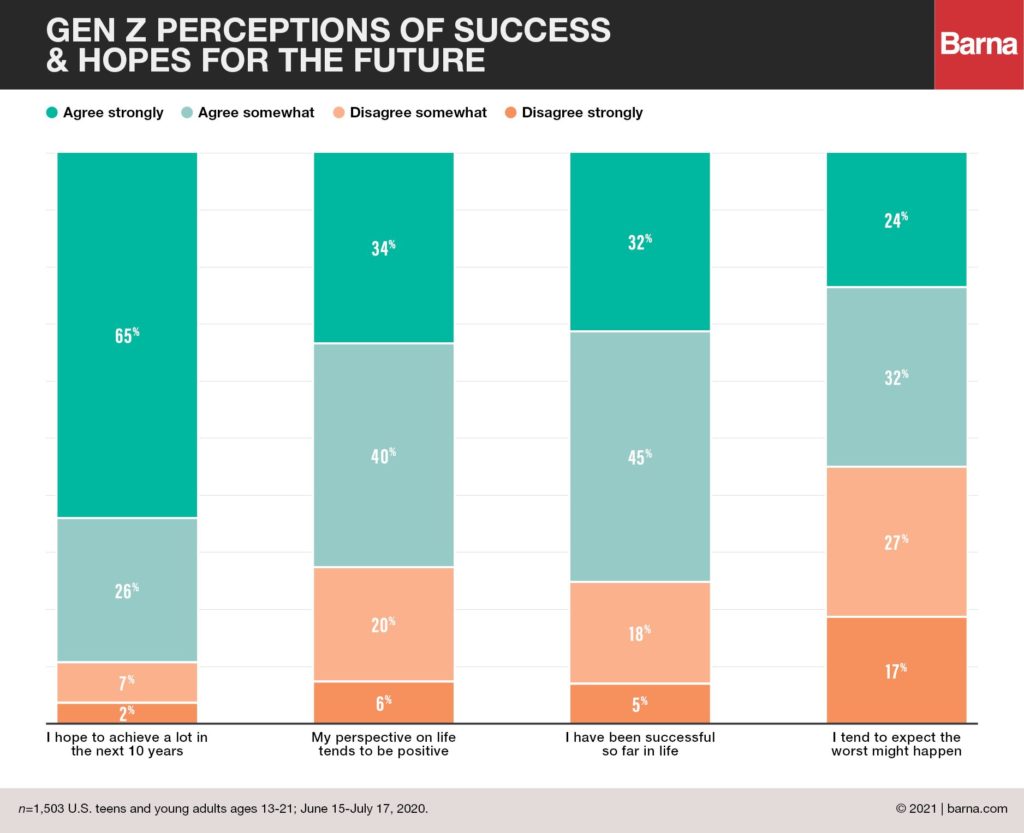In 2018, Barna and Impact 360 Institute released Gen Z: The Culture, Beliefs and Motivations Shaping the Next Generation, which sought to help church leaders understand the next, next generation, digging deep into their relationships with faith, their perception of identity, and their hopes for the future. Now, just a few years later, Barna and Impact 360 Institute have once again teamed up to learn more about this young generation.
Gen Z, Volume 2: Caring for Young Souls and Cultivating Resilience picks ups up where volume one ended, checking back in as the oldest members of this generation are emerging into the workforce. While tracking data has allowed researchers to follow trends presented in the first study, new questions also seek to learn more about Gen Z’s emotional lives, relationship to technology, and perceptions of faith. Today’s article offers a glimpse into this generation’s perceptions of success, anxiety, and empowerment.
Over Three in Five Gen Z Hope to Achieve a Lot in the Next 10 Years
As Gen Z Volume 1 highlights, ambition—drive, as we’re calling it—is a key generational attribute shared among today’s young adults and teens. Two-thirds of respondents to the 2016–2017 survey told researchers that finishing their education and starting a career were among their future goals. Yet for many, success is more than mere aspiration; it is a key source of identity. More than two in five reported that educational and professional achievement is very important to their sense of self.
These trends extend into the 2020 data, as well. Asked if they feel they have been successful thus far in life, three-quarters (77%) agree. Looking toward the next 10 years, nearly all (91%) agree they hope to achieve a great deal.

Despite generally having a success-oriented mindset, Gen Z’s future-orientation doesn’t necessarily equal sunny optimism. Three in four (73%) agree that their perspective on life tends to be positive, but more than half say they tend to expect the worst to happen (56%). In fact, roughly one-third agree with both statements, making them what we might call “positive pessimists.” While the two mindsets may appear paradoxical, Gen Z’s guardedness makes sense: While members of this generation are eager to achieve, many ground their drive in a healthy dose of realism. With sights set on success, they are also wary of too-lofty expectations.
About the Research
Interviews for this study were conducted using an online consumer panel of 1,503 U.S. teens and young adults ages 13 to 21 between June 15 and July 17, 2020. Quotas and minimal weighting were used to ensure data are representative of known U.S. Census ethnicity, gender, age and region. Margin of error is ±2.53 percent.
